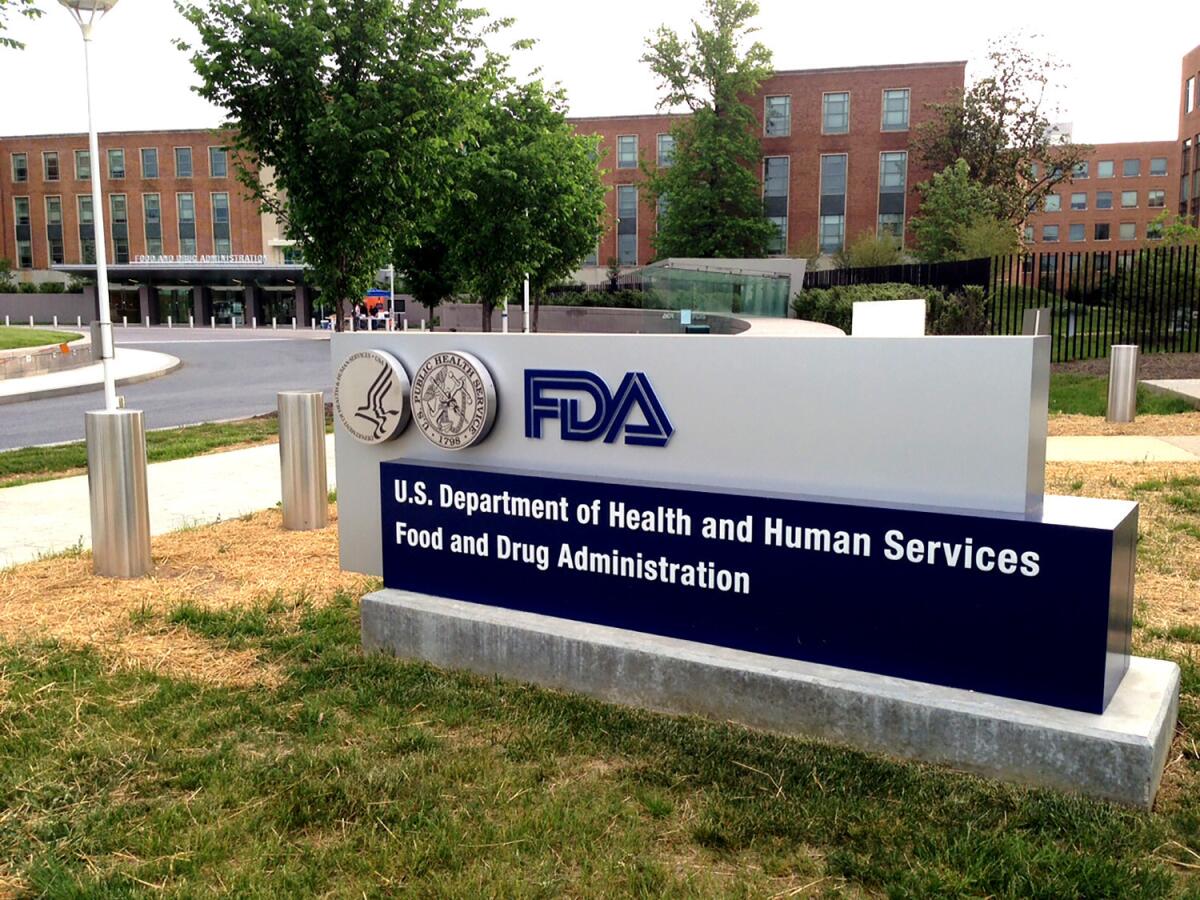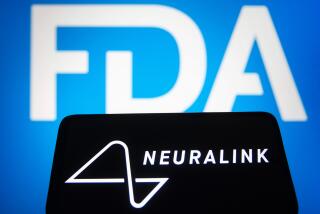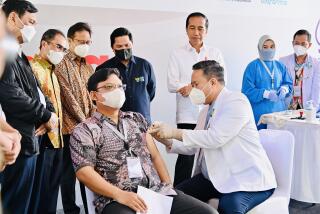El Segundo firm to begin Phase 1 clinical trial for coronavirus vaccine

- Share via
ImmunityBio, an El Segundo biotech company headed by Dr. Patrick Soon-Shiong, said Thursday it had received approval from the Food and Drug Administration to begin preliminary testing of the company’s COVID-19 vaccine candidate.
Hoag Hospital Newport Beach will start recruiting 35 adult volunteers this month for the Phase 1 trial, which is designed to monitor the safety and possible side effects of the vaccine. Dosages will vary per candidate and be administered in two shots three weeks apart, the company said in a news release.
For the record:
3:34 p.m. Oct. 15, 2020An earlier version of this article said volunteers for the trial would be recruited by Hoag Hospital Irvine. Hoag Hospital Newport Beach will recruit the candidates.
An estimated 213 laboratories around the world are trying to develop a vaccine, and three dozen have advanced to human trials, according to tracking by the Milken Institute. ImmunityBio is the first company headquartered in the Los Angeles area to reach this milestone. Soon-Shiong, the company’s chairman and chief executive, also owns the Los Angeles Times.
In an interview, Soon-Shiong called the FDA’s approval “extraordinary” and credited the role genetic sequencing has played in advancing vaccine research during the pandemic.
“From the time the Chinese put out the genetic sequence of the virus, scientists had the ability to work with it,” he said.
Phase 1, typically lasting about two months, is the earliest point at which humans are injected with vaccine candidates.
If the FDA allows ImmunityBio to proceed to Phase 2 and Phase 3 trials with increasing numbers of participants, the company may begin to get a signal as to whether the vaccine is effective. Soon-Shiong said he hoped to begin Phase 2 — or a combined Phase 2 and 3 — by the first quarter of 2021.
Nine vaccines are in Phase 3 trials around the world with tens of thousands of participants, according to the Milken tracker.
AstraZeneca and Johnson & Johnson, which are using a platform for their vaccines similar to ImmunityBio’s, recently paused their Phase 3 trials after volunteers came down with unexplained illnesses.
“The fact that there are so many scientists around the world working on vaccines and have found vaccine candidates that are plausible and getting into clinical trials is very exciting,” said Dr. William Schaffner, an infectious disease expert at Vanderbilt University and medical director at the National Foundation for Infectious Diseases.
“Getting a vaccine ready will not be a straight-line affair,” he said. “We need lots of shots on target, and we should be pleased if there were any number of vaccines being successful because we have the world’s population to vaccinate.”
ImmunityBio’s announcement comes as infection rates are rising in the Midwest and epidemiologists are warning about a second wave of infections this winter. Since the Centers for Disease Control and Prevention confirmed the first case of the novel coronavirus in Washington state in January, nearly 218,000 Americans have died of the disease.
The vaccine, called hAd5, relies on a genetically engineered adenovirus to deliver two proteins of the novel coronavirus into the body, triggering an immune response that can protect against future infections.
Although other companies are also using the adenovirus, most are delivering only one component of the novel coronavirus: the S, or spike protein.
But the challenge presented by the adenovirus, Soon-Shiong said, is that it is a common cold virus, and many people have already developed antibodies against it. Those antibodies would attack the adenovirus before the immune system had an opportunity to develop a response.
But by delivering not just the S protein, which studs the outside of the coronavirus, but also an additional protein from inside the virus, ImmunityBio believes that its vaccine candidate will provide longer-lasting immunity.
“While there are a number of vaccine candidates in development, we believe most are limited by their sole focus on antibody responses to the monovalent spike protein, which may be insufficient to activate the full potential of the immune system to fight the coronavirus,” Soon-Shiong said in a statement.
ImmunityBio had been researching the adenovirus in the course of developing cancer treatments when the pandemic started. The privately held company is sharing the cost of development, manufacturing and marketing with its publicly traded affiliate, NantKwest, of which Soon-Shiong also serves as chairman and chief executive.
More to Read
Sign up for Essential California
The most important California stories and recommendations in your inbox every morning.
You may occasionally receive promotional content from the Los Angeles Times.











